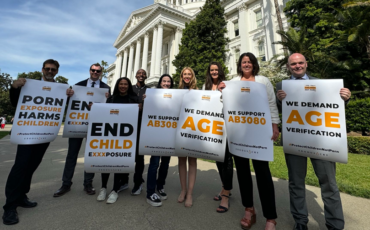

There are just six days until our FREE webinar, “The Truth About Transition.” And we want YOU to join us!
We know the truth that God created us male and female. But our children and our culture are inundated with messages that say it’s possible to change sex – that you may have been born in the wrong body. And it’s a real struggle that some youth face. The supposed solution? Puberty blockers, cross-sex hormones, and surgery. These interventions can leave children sterile and facing scars of both body and heart.
But as this narrative continues to run its course throughout our culture – and permeate our children’s schools and phones – it’s important to understand this topic and be able to speak to it with winsomeness. Whether this issue directly affects your family, or you simply want to be able to understand and discuss this, now is the time.
Register TODAY for our FREE webinar “The Truth About Transition,” happening next Tuesday (September 14) at 1 PM ET. We’ll be talking with a medical professional to provide answers to:
- What makes someone male or female?
- What causes gender confusion?
- What are the dangers and long-term side effects of transition?
- How can we meaningfully protect and help children?
- What can parents do?
- And more!
Have your own question about this topic? Come ready to share your question in the comments, and we might address it during the webinar! Just don’t forget to register!
| Andrè Van Mol, MD |
 |
Andrè Van Mol, MD is a board-certified family physician in private practice. He serves on the board at Moral Revolution and is the co-chair of the American College of Pediatrician’s Committee on Adolescent Sexuality. He speaks and writes on bioethics and Christian apologetics and teaches a course bioethics. |
Can’t make it to the live webinar? If you register, we’ll send you a link so you can watch later!
Hope to see you soon!

Meridian Baldacci
Policy and Communications Strategist




